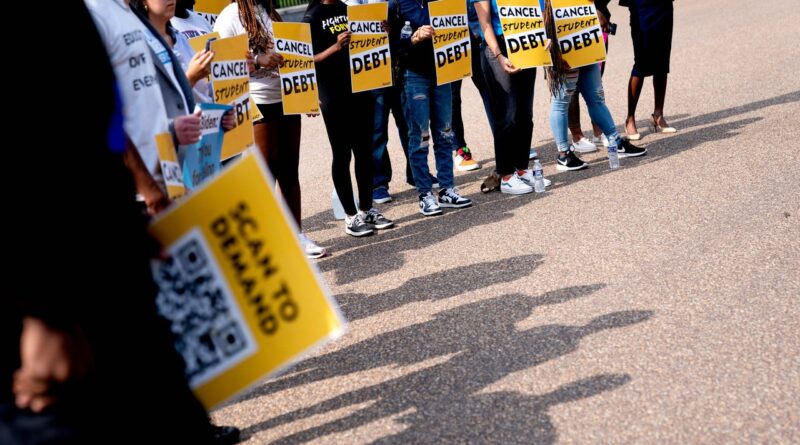Federal Judge Rules That Biden’s Student Loan Forgiveness Plan Is Unlawful
This story is published as part of Teen Vogue’s 2022 Economic Security Project fellowship.
A Trump-appointed federal judge in Texas ruled that President Biden’s student debt relief plan is unlawful, calling it “an unconstitutional exercise of Congress’s legislative power” in the Thursday filing. Within hours, the US Department of Education filed a notice with the court stating its intent to appeal the decision.
That same evening, White House press secretary Karine Jean-Pierre released a statement that said, in part, “For the 26 million borrowers who have already given the Department of Education the necessary information to be considered for debt relief — 16 million already been approved for relief — the Department will hold onto their information so it can quickly process their relief once we prevail in court.”
With student debt payments still set to be turned back on starting January 1, the possibility that the plan will be tied up in the courts for weeks or even months is concerning. In an October interview with Teen Vogue for a story summarizing the anti-debt-relief lawsuits, Debt Collective’s legal strategist Sparky Abraham made this exact point: “I think the possibility that [debt relief] could get held up is also a really good reason for the Biden administration to extend the payment pause.” As of late October, the White House had been unwilling to comment on the possibility of another extension when asked by reporters.
Let’s look back at the original lawsuit
First filed on October 10 by conservative advocacy group Job Creators Network, this suit is one of at least seven legal challenges aimed at Biden’s debt relief plan. The lawsuit focuses on two plaintiffs, Alexander Taylor and Myra Brown: Taylor is eligible for only $10,000 in debt relief, rather than the $20,000 in cancellation extended to Pell Grant recipients, and is thus claiming “harm”; Brown is ineligible for any relief at all because her loans are non-defaulted and commercially held. (Interestingly, as reported by The Intercept, this particular debtor also happens to have had roughly $48,000 in Paycheck Protection Program, or PPP, loans forgiven in April.)
The suit states further that both plaintiffs believe the plan’s eligibility requirements are “irrational, arbitrary, and unfair,” and argues that the US Department of Education made procedural errors when enacting the programming by not providing a chance for public notice or comment. On Taylor’s behalf, the suit maintains that “he should not be penalized because he did not receive a Pell Grant in college.” On Brown’s behalf, the suit argues that Biden’s plan should not “exclude her from the program because her student debt is commercially held and not in default.” As stated in the filing, both “believe that their student loan debt should be forgiven too.”
The suit also takes issue with the Biden administration’s claim that the Higher Education Relief Opportunities for Students (HEROES) Act grants the executive branch the authority to enact the debt relief plan.
How to make sense of the judge’s ruling
The Texas judge argued that the HEROES Act doesn’t grant the Department of Education sufficient authority to cancel federal student debt. In his conclusion, the judge characterized Biden’s debt relief plan as executive overreach and a separation of powers issue. “In this country,” the judge wrote, “we are not ruled by an all-powerful executive with a pen and a phone” — possibly a belated dig at President Barack Obama, as public interest attorney Joel Dodge pointed out on Twitter.





